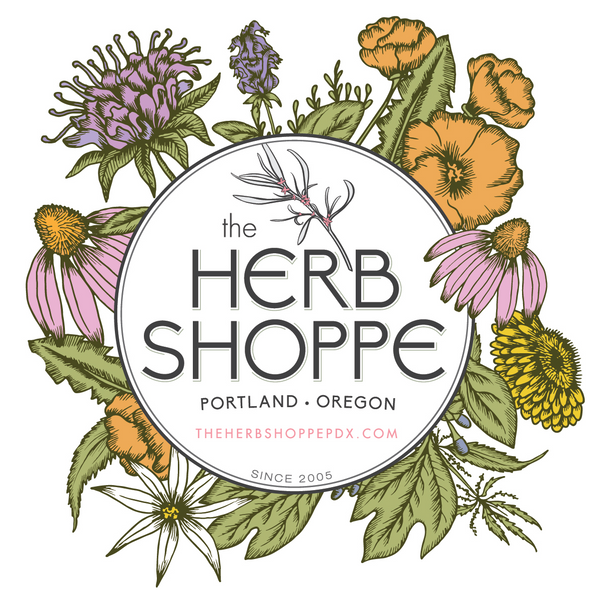
What a serene scene unfolds in the Six of Cups. Six golden goblets filled with bright, blooming white flowers populate this image. Two children in cheery red hoods stand in a bright plaza. The older one gives one of the goblets, overflowing with white flowers, to his younger sister. He bends down to smell the flowers before handing them over, in a sweet act of love and friendship. This handing of innocent white flowers between siblings shows the passing of traditions and happy reunions. The children are safe and secure in a small public square, surrounded by comfortable cottages. Such are our memories, couched by time, often polished and smoothed over by our own repeated recollections of them. Like gems, they gleam prettier than they did when they were first removed from the earth. Nostalgia can soften and sweeten all sorts of reminiscences, taking the grit or sting out of an experience, instead replacing it with a softer lens, a more forgiving attitude, or a hazier recollection of anything painful or disagreeable that might have occurred. Because our past no longer exists, we often feel a longing for things that are gone. But if we are not careful, nostalgia can distort our history.
Time is a fire that burns the present moment with amazing rapidity, until all we have is the ashes and the smoke of what we can recall. Reflecting too long on the past can be dangerous for this very reason – like trying to capture a wave on the beach with our hands. As soon as we take hold of the water, the wave is gone. Instead, it is important to reflect on our history with an awareness of the nostalgia that might be distorting what truly occurred. The past is one of our most instructive teachers, allowing us to learn from our mistakes as well as our triumphs, giving us a deeper understanding of how often life fluctuates – a colorful kaleidoscope of changes, which continually alter our world view and even our relationship with ourselves. The Six of Cups reminds us that a trip down memory lane can bring new revelations to current challenges, foster appreciation for how we’ve grown or help us recognize how special specific people or places were to our growth and evolution. As long as we are careful not to forget that often memories are enhanced with time and that ultimately, they only serve us if they help us move forward.
Rosemary (Rosmarinus officinalis) is a well-known perennial shrub with aromatic, needle-like leaves belonging to the mint family (Lamiaceae) that originally came from regions near the Mediterranean Sea but is now grown in many gardens throughout the world due to its various culinary uses. It is the perfect medicinal companion to the Six of Cups as it contains an impressive array of antioxidants which appear to have neuroprotective abilities, increasing cognition and memory related tasks amongst both young and old participants in recent studies. The volatile compounds which give it its sharp, pungent aroma have been found to increase the primary neurotransmitter acetylcholine, which is responsible for memory and learning. The phenolic compounds rosmarinic and carnosic acids found in Rosemary have also shown to reduce inflammation, inhibit neuronal cell death and exhibit hepatoprotective properties, all of which help reduce symptoms of Alzheimer's disease and its accompanying memory loss. Carnosic acid has also been shown to help balance the microflora of the intestines and rosmarinic acid stimulates circulation, helping to clear out distorted blood cells so they can be replaced with new, fresh ones.
The Six of Cups and Rosemary show us the power that memories have on who we are and where we’re going if we don’t define ourselves by our history or linger too long in nostalgia. If we can learn from our memories then they are, indeed, sweet gifts, like white flowers blooming in golden goblets.
 *Tarot reading is based on the Rider-Waite Tarot Card deck, illustrated by Pamela Colman Smith
*Tarot reading is based on the Rider-Waite Tarot Card deck, illustrated by Pamela Colman Smith
References
Geer, Mary K. Tarot for Your Self: A Workbook for the Inward Journey, 2nd Edition. New Jersey, The Career Press, Inc, 2002. P257
O.V. Filiptsova, L.V. Gazzavi-Rogozina, I.A. Timoshyna, et al. “The Essential Oil of Rosemary and Its Effect on the Human Image and Numerical Short-Term Memory.” ScienceDirect, 8 May 2017. https://www.sciencedirect.com/science/article/pii/S2314808X16301890
Solomon Habtemariam. “The Therapeutic Potential of Rosemary (Rosmarinus officinalis) Diterpenes for Alzheimer's Disease.” National Center for Biotechnology Information, 28 January 2016. https://www.ncbi.nlm.nih.gov/pmc/articles/PMC4749867/
S.M. Hussain, A.F. Syeda, M. Alshammari, et al. “Cognition Enhancing Effect of Rosemary (Rosmarinus officinalis L.) in Lab Animal Studies: A Systematic Review and Meta-analysis.” National Center for Biotechnology Information, 9 February 2022. https://www.ncbi.nlm.nih.gov/pmc/articles/PMC8851910/

